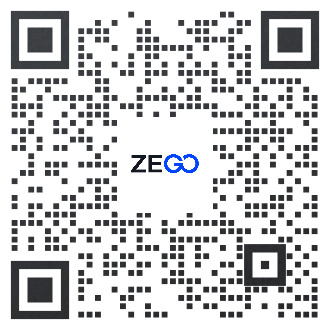- Documentation
- On-Premises Recording
- Quick Starts
- Mixed Stream Recording
Mixed Stream Recording
The On-Premises-Recording SDK supports mixing the audio and video streams of all users in the room into a single screen and then start recording. After integrating the SDK, you can start to use the Mixed-Stream-Recording function.
Set the Listenner of Callback
Before initialization, you need to inherit the interface named 'icallback' and set the listenner of the callback.
Interface Prototype:
ZEGO_API bool SetCallback(ICallback* pCB)Parameter:
pCB:Pointer to the object of callback.Notes:
Before initializing the SDK, you can call the following interfaces as needed:
SetLogDirAndSizeSet the path and size of the log file
Initialize SDK
Call the InitSDK interface to initialize the SDK, and pass the applied AppID into the parameter "uiAppID".
- Request Method and Endpoint:
ZEGO_API bool InitSDK(unsigned int uiAppID)- parameter:
uiAppID: The digital ID distributed by ZEGO, the unique identifier of each developer.
- Asynchronous callback interface:
class ICallback
{
public:
virtual void OnInitSDK(int errorCode) {}
}errorCode == 0 means the initialization was successful.
Set token
Call the SetCustomToken interface to pass the Token into the SDK before logging in to the room.
- Request Method and Endpoint:
ZEGO_API void SetCustomToken(const char *thirdPartyToken)- parameter:
thirdPartyToken: Authentication Token.
Login Room
When initialize successfully, you also need to login the room before recording.
Interface Prototype:
ZEGO_API bool LoginRoom(const char* pszRoomID)Parameters:
pszRoomID:Room ID, for the Room with a pushing-stream.Asynchronous Callback Interface:
class ICallback { public: virtual void OnLoginRoom(int errorCode, const char *pszRoomID) = 0; }
Start Recording
- Before you call the interface, the SDK must be initialized successfully.
- It is recommended to start recording according to the stream-add information, which you can get from the stream information update callback
OnStreamUpdateAfter login the room.- You can get the maximum number of simultaneous recording stream that the SDK allows, by calling the interface
GetMaxRecordCount.
Interface Prototype:
ZEGO_API bool StartRecordMixStream(ZegoMixStreamRecordConfig* pConfig)Parameters:
pConfig:Configuration of mixed-stream-recording, please refer to:ZegoMixStreamRecordConfig。Asynchronous Callback Interface:
class ICallback { public: virtual void OnStreamRecordBegin(const char* pszStreamID, const char *pszPathAndName) = 0; virtual void OnMixStreamRecordUpdate(const char** ppszStreamID, int nStreamCount) = 0; }When recording start successfully, you will receive the callback named
OnStreamRecordBegin, When successfully pull a stream with audio and video data, you will receive the callback namedOnMixStreamRecordUpdate.
Notes:
If you need to record single and mixed streams simultaneously, before recording you need to call the interface:
EnableSingleAndMixRecordMode; This mode consumes more system resources, and can only start mixed-stream recording first, and then start individual-stream recording; when you end mixed-stream recording, all individual-stream recording will also end. In this mode, the SDK has a limitation. Mixed stream recording will mix all the streams being recorded by individual-stream recording. Even if a single stream in individual-stream recording is not used as a input stream of mixed-stream recording, if this single stream has audio data, the audio data will also be recorded by mixed-stream recording.
Update Configuration of the Mixed Stream
When it is necessary to increase the input stream, change the original input stream, or change the mixed-stream output configuration, you need to reconstruct the mixed-stream configuration and call the following interface to update mixed-stream configuration .
Interface Prototype:
ZEGO_API bool UpdateInputStreamConfig(ZegoStreamConfig* pInputStream, int nInputStreamCount)Asynchronous Callback Interface:
class ICallback { public: virtual void OnMixStreamRecordUpdate(const char** ppszStreamID, int nStreamCount) = 0; }when a mixed-stream recording starts successfully, a callback is returned, which contains a list of ID of all input single streams of the mixed-stream, only stream which is pulled successfully will be recorded. Note: You will receive this callback when any single stream of mixed-stream recording changes, such as starting recording, abnormal recording, etc.
Stop Recording
Interface Prototype:
ZEGO_API bool StopRecordMixStream()Asynchronous Callback Interface:
class ICallback { public: virtual void OnStreamRecordEnd(const char* pszStreamID, const char *pszPathAndName, RecordEndReason reason) = 0; }Notes:
When recording is no longer needed, it is recommended to do the following:
- Call the interface
LogoutRoomto logout the room. - Call the interface
LIVEROOM::SetCallback(nullptr);to Remove the callback listener. - Call the interface
UnInitSDKto deinitialization the SDK。
- Call the interface

